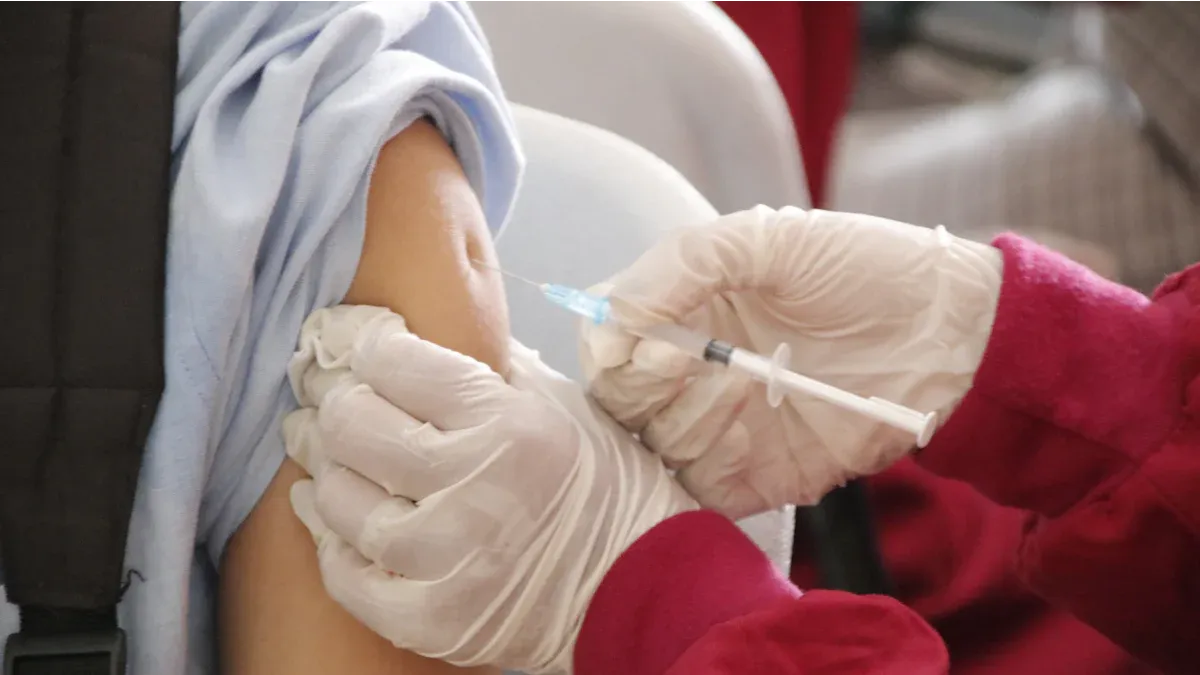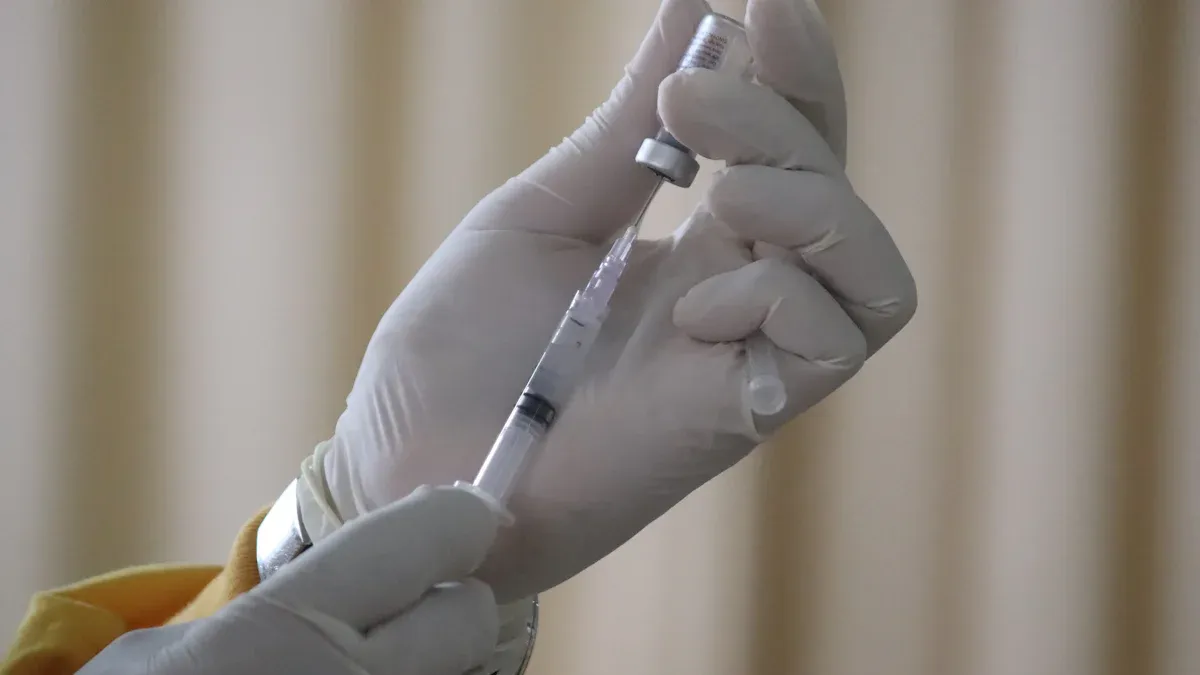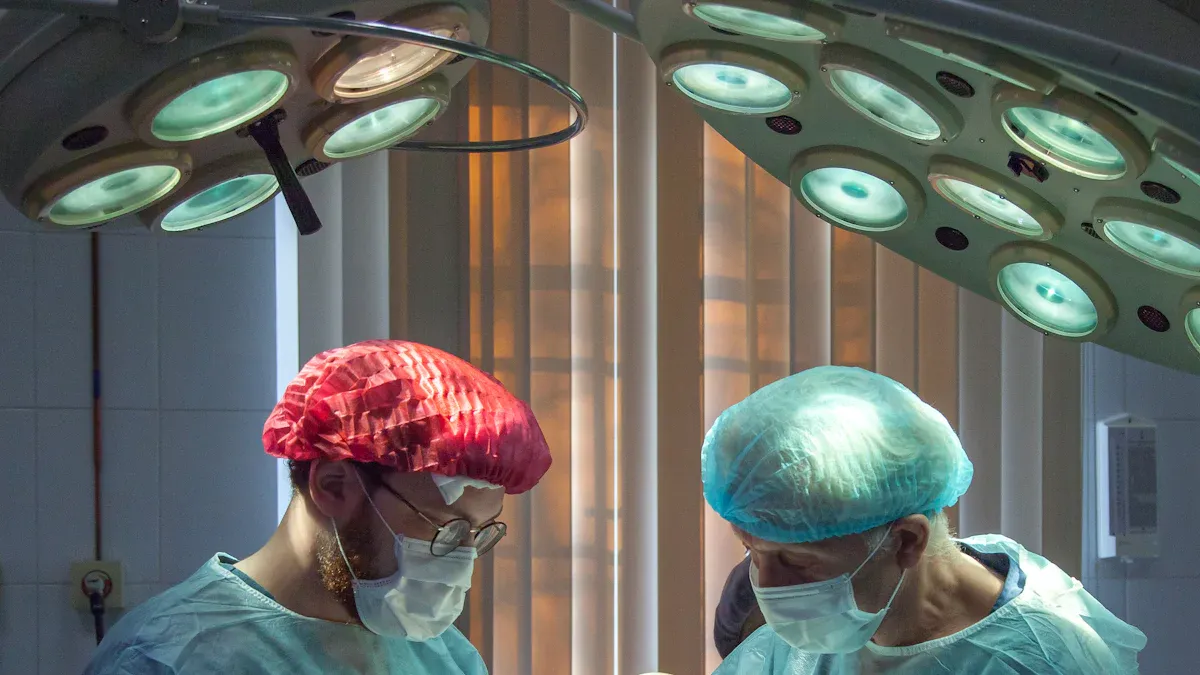The importance of child immunization in the Philippines
Dr. Kristin Grace Guerrero-Gonzalez is a board-certified pediatrician and clinical & metabolic geneticist based in Bacolod City.

Child immunization plays a crucial role in safeguarding the health of Filipino children. It protects them from life-threatening diseases like tuberculosis, measles, and polio, which remain prevalent in the Philippines. Despite its importance, many children still miss out on vaccines. In 2022, only 70% of children aged 12-23 months received full immunization, while 10% had no vaccinations at all. These numbers highlight the importance of vaccination in preventing outbreaks and ensuring a healthier future for families. By prioritizing immunization, you can help protect your child and contribute to a stronger, healthier community.
Key Takeaways
Vaccines protect kids from diseases like measles, polio, and TB. Make sure your child gets all needed shots to stay safe.
Vaccinating your child helps protect the whole community. It stops outbreaks and keeps weak or sick people safe.
Shots keep kids healthy for a long time. Healthy kids do better in school, and families save money by avoiding preventable sicknesses.
Learn about vaccine schedules and get free shots from the government. Visit health centers to keep your child safe.
Fight fears about vaccines by learning and sharing facts. Trust good sources and talk to doctors to clear up worries.
Benefits of Child Immunization

Protection from life-threatening diseases
Child immunization shields your children from life-threatening infectious diseases that can cause severe complications or even death. Vaccines protect against illnesses such as tuberculosis, diphtheria, tetanus, pertussis, polio, measles, mumps, rubella, hepatitis B, and H influenza type B (HIB). These diseases are preventable, yet they continue to pose risks, especially in areas with low vaccination rates. By ensuring your child receives the necessary vaccines, you provide them with a strong defense against these harmful illnesses.
Imagine the peace of mind that comes from knowing your child is safe from vaccine preventable diseases. Vaccination not only protects your child but also reduces the chances of these diseases spreading to others. It’s a simple yet powerful way to secure their health and future.
Strengthening herd immunity
When you vaccinate your child, you contribute to the health of your entire community. Immunization helps achieve herd immunity, which occurs when enough people are vaccinated to stop the spread of diseases. For example, at least 95% of the population must be vaccinated to prevent measles outbreaks. This protection is especially important for individuals who cannot receive vaccines, such as newborns or those with weakened immune systems.
Your decision to vaccinate plays a vital role in creating a safer environment for everyone. Community immunity ensures that diseases like polio and rubella have fewer opportunities to spread. Together, we can build a healthier society where preventable illnesses no longer threaten our loved ones.
Long-term health and economic advantages
Vaccinating your children offers benefits that extend far beyond their immediate health. Healthy children are more likely to attend school regularly and achieve their full potential. Families also avoid the financial burden of treating preventable illnesses, which can be costly and emotionally draining.
On a larger scale, widespread immunization reduces healthcare costs for communities and strengthens the economy. When fewer people fall ill, productivity increases, and resources can be directed toward other pressing needs. By prioritizing child immunization, you invest in a brighter, healthier future for your family and the nation.
Risks of Not Vaccinating Children
Higher risk of disease outbreaks
When children miss their vaccines, the risk of disease outbreaks increases significantly. Diseases like polio, measles, and tuberculosis can spread rapidly in communities with low immunization rates. These illnesses are highly contagious and can affect many children in a short time. A decline in child immunization coverage creates gaps in protection, making it easier for these diseases to return.
Natural disasters in the Philippines often disrupt routine immunization efforts. This disruption leaves children vulnerable to vaccine preventable diseases. The COVID-19 pandemic also sidelined essential health services, further reducing vaccination rates. By ensuring your child receives their vaccines, you help prevent these outbreaks and protect the health of your community.
Negative impact on community health
Low immunization rates don’t just affect individual children—they harm the entire community. When fewer children are vaccinated, diseases have more opportunities to spread. This puts vulnerable groups, like newborns and those with weakened immune systems, at greater risk.
In the Philippines, vaccine hesitancy remains a challenge. A 2021 national survey revealed that 6 in 10 Filipinos were hesitant about vaccines. Misinformation during the COVID-19 pandemic worsened this issue, leading to a decline in child immunization coverage. You can combat this by staying informed and ensuring your child gets vaccinated. Your actions contribute to a healthier, safer environment for everyone.
Financial and emotional burden of preventable illnesses
Caring for a sick child can be both financially and emotionally overwhelming. Treating diseases like polio or measles often requires expensive hospital stays and long-term care. These costs can strain families, especially those with limited resources.
The emotional toll is equally heavy. Watching your child suffer from a preventable illness can be heartbreaking. Vaccination offers a simple solution to avoid these hardships. By prioritizing immunization, you protect your family from unnecessary stress and expenses. You also invest in your child’s future, ensuring they grow up healthy and strong.
Current State of Child Immunization in the Philippines

Overview of vaccination programs
The Philippine government has implemented several programs to ensure children receive essential vaccines. These initiatives aim to protect children from diseases like polio, measles, and rubella. The Expanded Program on Immunization (EPI) is a cornerstone of these efforts. It focuses on providing routine immunization to prevent vaccine-preventable diseases. Another key initiative is the Chikiting Ligtas Campaign, which targets measles, rubella, and polio through mass immunization campaigns.
Laws like Republic Act No. 10152 mandate comprehensive immunization for Filipino children. Additionally, Republic Act No. 11148 emphasizes health and nutrition during the first 1,000 days of a child’s life, including vaccination. The government also launched the COVID-19 Vaccination Program Act to address the pandemic. These programs reflect a strong commitment to safeguarding children’s health and ensuring they are fully protected against measles and other diseases.
Challenges in achieving full immunization coverage
Despite these efforts, achieving full immunization coverage remains a challenge. Vaccine hesitancy is a significant barrier. A 2021 survey revealed that 6 in 10 Filipinos were hesitant about vaccines. Cultural beliefs in some regions, such as BARMM, further contribute to this issue. Religious leaders are working to address these concerns, but progress takes time.
Access to healthcare facilities is another hurdle. Many families in rural areas face long travel distances and inadequate transport links. This limits their ability to participate in routine immunization activities. These challenges highlight the need for innovative solutions to block and eliminate transmission of preventable diseases.
Success stories and ongoing progress
Amid these challenges, there are inspiring success stories. In the Zamboanga Peninsula, catch-up immunization campaigns restored coverage after declines caused by COVID-19. Local government units, health workers, and organizations like UNICEF collaborated to close immunization gaps. Monthly door-to-door vaccination activities have reached children who were previously missed. These efforts demonstrate the power of community action in protecting children’s health.
By participating in vaccination programs, you contribute to these success stories. Together, we can ensure every child receives the oral polio vaccine and other life-saving immunizations. Let’s continue to support routine immunization activities and measles vaccination efforts to build a healthier future.
How to Access Vaccines in the Philippines
Free vaccines through government programs
The Philippine government offers free vaccines to ensure every child is protected from preventable diseases. Through the Expanded Program on Immunization (EPI), children can receive essential vaccines at no cost. These include protection against tuberculosis, polio, measles, and more. The program aims to make immunization accessible to all families, especially those in underserved areas.
Here’s a quick overview of the free vaccines available under the mandatory immunization program:
Vaccine-Preventable Diseases | Description |
|---|---|
Tuberculosis | Covered under the mandatory immunization program |
Diphtheria | Covered under the mandatory immunization program |
Tetanus | Covered under the mandatory immunization program |
Pertussis | Covered under the mandatory immunization program |
Poliomyelitis | Covered under the mandatory immunization program |
Measles | Covered under the mandatory immunization program |
Mumps | Covered under the mandatory immunization program |
Rubella | Covered under the mandatory immunization program |
Hepatitis-b | Covered under the mandatory immunization program |
H influenza type B (HIB) | Covered under the mandatory immunization program |
Other diseases as determined | Covered under the mandatory immunization program |
You can visit your local health center to access these vaccines. Health workers are ready to assist you in protecting your baby and ensuring they grow up healthy.
Vaccination options in private healthcare facilities
If you prefer private healthcare, many clinics and hospitals in the Philippines offer vaccination services. These facilities provide a wider range of vaccines, including optional ones not covered by government programs. Private clinics often offer flexible schedules, shorter waiting times, and personalized care.
While private services may come with additional costs, they can be a convenient option for families with specific needs. You can consult your pediatrician to create a vaccination plan tailored to your child’s requirements. This ensures your child receives the best possible protection against diseases like polio and measles.
Practical tips for parents to ensure timely immunization
Staying on top of your child’s immunization schedule can feel overwhelming, but a few simple steps can make it easier. First, keep a vaccination record to track the vaccines your child has received. This helps you avoid missed doses and ensures timely protection.
Second, set reminders for upcoming immunization appointments. You can use a calendar or mobile app to stay organized. Third, communicate with your healthcare provider. They can guide you on the right vaccines for your child’s age and health needs.
Finally, educate yourself about the importance of vaccines. Understanding how they work and their benefits can motivate you to prioritize your child’s health. By taking these steps, you ensure your child stays protected and contributes to a healthier community.
Child immunization is a cornerstone of public health in the Philippines. It protects children from preventable diseases and strengthens the health of entire communities. Laws like Republic Act No. 10152 and Republic Act No. 11148 ensure comprehensive immunization and prioritize health during the critical early years of life.
Legislation | Description |
|---|---|
Republic Act No. 10152 | Mandates comprehensive immunization for Filipino children against diseases. |
Republic Act No. 11148 | Strengthens health and nutrition, including immunization, in the first 1,000 days. |
COVID-19 Vaccination Program Act (2021) | Funds and organizes the national COVID-19 vaccination program. |
The Department of Health has implemented strategies like home visits by barangay health workers and temporary vaccine sites in malls to make vaccines more accessible. These efforts ensure that every family, even in rural areas, can protect their children and contribute to a healthier nation.
By vaccinating your child, you not only safeguard their future but also help build a resilient community. Take action today to ensure your child receives all necessary vaccines. Together, we can create a brighter, healthier Philippines.
FAQ
What vaccines are included in the Philippine government’s free immunization program?
The government provides free vaccines for diseases like tuberculosis, polio, measles, mumps, rubella, hepatitis B, and more. These vaccines are part of the Expanded Program on Immunization (EPI) and are available at local health centers.
What should you do if your child misses a scheduled vaccine?
Visit your healthcare provider immediately. They will guide you on catch-up immunization schedules to ensure your child remains protected. Delays can be addressed, so don’t hesitate to act quickly.
What are the side effects of vaccines, and are they safe?
Vaccines are safe and undergo rigorous testing. Mild side effects like fever or soreness at the injection site are normal. Serious reactions are extremely rare. The benefits of vaccination far outweigh the risks.
What can you do to overcome vaccine hesitancy?
Educate yourself about the benefits of vaccines. Speak with healthcare professionals to address concerns. Trust credible sources and avoid misinformation. Your decision to vaccinate protects your child and strengthens community health.
What age should children start receiving vaccines?
Children should begin receiving vaccines at birth. The first dose of BCG (for tuberculosis) and hepatitis B is given immediately after birth. Follow the immunization schedule provided by your healthcare provider to ensure timely protection.
See Also
Top 5 Skin Issues in Filipino Kids and Their Solutions
Women Pediatricians: Experts in Child Health Care
Five Essential Advantages of Breastfeeding for Moms and Babies

